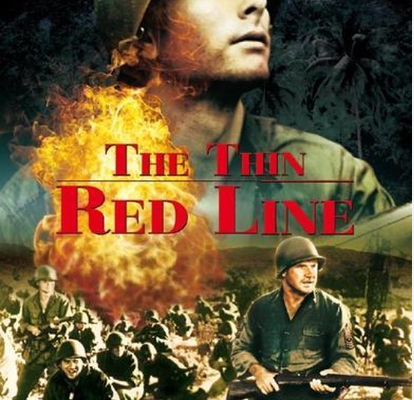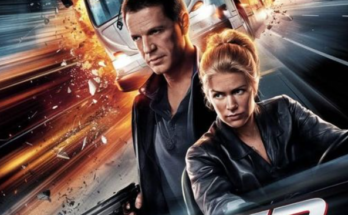“The Thin Red Line,” directed by Terrence Malick and released in 1998, is a profound and visually stunning war film set during World War II, specifically focusing on the Battle of Guadalcanal in the Pacific Theater. Based on James Jones’s novel, the film offers a meditative exploration of the human experience in the face of war, blending personal narratives with philosophical reflections.
The story centers around a group of U.S. soldiers from Charlie Company as they navigate the chaos of battle. With an ensemble cast that includes notable performances from Sean Penn, Jim Caviezel, George Clooney, and Nick Nolte, the film delves into the inner thoughts and emotions of the soldiers, presenting their fears, hopes, and moral dilemmas.
Malick’s signature style shines through with his use of stunning cinematography, capturing the lush landscapes of Guadalcanal juxtaposed with the brutal realities of war. The visuals create a hauntingly beautiful atmosphere that enhances the film’s contemplative tone. The natural world is depicted as both a serene backdrop and a chaotic battleground, emphasizing the contrast between the tranquility of nature and the violence of human conflict.
One of the film’s strengths is its philosophical approach to the themes of life, death, and the nature of humanity. The soldiers grapple with existential questions as they confront the horrors of war. The narrative is non-linear, weaving between individual stories and collective experiences, allowing viewers to witness the psychological impacts of combat. Through voiceovers and dreamlike sequences, the film delves into the soldiers’ minds, revealing their vulnerabilities and introspections.
As the plot unfolds, the focus shifts from the battlefield to the relationships and dynamics within the company. The characters embody various responses to the stress of combat, from bravery to cowardice, and from camaraderie to betrayal. This exploration of humanity in war is what sets “The Thin Red Line” apart from more traditional war films.
The film’s score, composed by Hans Zimmer, complements its visual and emotional depth, evoking a sense of longing and introspection. The music heightens the tension during battle scenes while also providing moments of reflection amid the chaos.
Critically acclaimed for its artistry and depth, “The Thin Red Line” challenges conventional war narratives by emphasizing the emotional and philosophical aspects of combat over straightforward action. It invites viewers to contemplate the cost of war on the human spirit and the search for meaning in the midst of destruction.
Ultimately, “The Thin Red Line” is not just a war film; it’s an exploration of life itself, making it a timeless piece that resonates deeply with audiences. Malick’s unique vision elevates the genre, offering a poignant meditation on the fragility of life and the enduring struggles faced by humanity.



